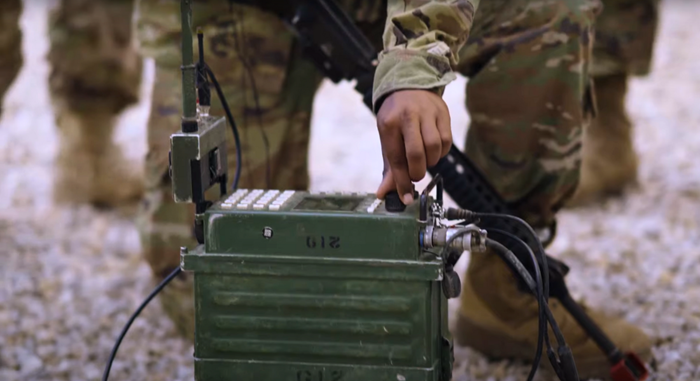Are you considering a career in the U.S. Army and intrigued by the role of a Signals Intelligence Analyst? This article will provide you with an in-depth understanding of the 35N Military Occupational Specialty (MOS) and the exciting opportunities it offers to those who enlist. Whether you’re a civilian looking for a challenging job or an active-duty soldier looking to switch careers, the 35N MOS could be your ticket to a rewarding and dynamic career.
Exploring the Signals Intelligence Analyst: MOS 35N
Signals Intelligence Analysts, often referred to as 35Ns, are the unsung heroes of the intelligence community. Their role is crucial in gathering, analyzing, and interpreting intelligence reports that are essential for military operations and national security. If you are eager to join the ranks of these skilled professionals, this article will be your guide to understanding what the 35N MOS entails, the opportunities it presents, and the impact you can make in this field.

Article Outline
To provide you with a comprehensive view of the 35N MOS, we will delve into the following aspects:
1. What is the 35N Signals Intelligence Analyst MOS?
In this section, we’ll break down the role of a 35N, their responsibilities, and the significance of their work in the military.
2. How to Join the Army as a 35N Signals Intelligence Analyst
For those considering enlisting, we’ll discuss the enlistment process and the steps to become a Signals Intelligence Analyst in the Army.
3. Duties and Job Opportunities
Discover the various roles and job opportunities available to 35Ns, both during their active duty and as civilians after their military service.
4. The Path to Becoming a 35N
Explore the training and education required to excel in this MOS, including the Advanced Individual Training (AIT) that 35Ns undergo.
5. Career Prospects and Advancements
Find out about the career growth and advancement opportunities available to Signals Intelligence Analysts, including the possibility of becoming a commissioned officer.
6. The Technical Side of the 35N MOS
Learn about the technical skills, equipment, and tools used by 35Ns in their mission to collect and analyze intelligence data.
7. The Impact of 35Ns on National Security
Discover how 35Ns contribute to safeguarding national security through their work in intercepting, analyzing, and reporting on foreign communications.
8. Life as a 35N
Get a glimpse into the daily life and challenges that Signals Intelligence Analysts face, from combat training to maintaining classified information.
9. Training and Education
Explore the specialized training and education that 35Ns receive to become highly skilled in their field.
10. Future Opportunities in the 35N MOS
Find out about the potential career opportunities beyond the military for 35Ns, including employment in intelligence agencies like the FBI and CIA.
What is the 35N Signals Intelligence Analyst MOS?
The 35N Signals Intelligence Analyst Military Occupational Specialty (MOS) is a critical role in the U.S. Army. Intelligence analysts in this field are responsible for the collection, analysis, and interpretation of intelligence reports derived from foreign communications and activity. These reports are instrumental in helping military and national security agencies make informed decisions.
As a 35N, you’ll learn to examine and interpret intercepted messages, gather information, and maintain surveillance systems. This information is vital for strategic and tactical analysis, allowing military commanders to make informed decisions in combat and other operations.
How to Join the Army as a 35N Signals Intelligence Analyst
If you’re considering a career as a 35N, you’ll need to enlist in the U.S. Army. Enlisting as a 35N requires you to meet certain criteria, including passing the Army’s basic training, receiving the necessary security clearance, and undergoing specialized training in the 35N MOS.
Enlisting in the Army and choosing the 35N MOS is a significant commitment, but it can open doors to a fulfilling and impactful career.
Duties and Job Opportunities
As a 35N, your duties are varied and crucial to the success of military operations. You’ll be tasked with isolating valid intelligence from intercepted communications, which involves sifting through vast amounts of data to identify actionable information. You’ll also be responsible for producing tactical intelligence reports, which are essential for tactical decision-making in combat situations.
Job opportunities for 35Ns are not limited to the military. After completing their service, many former Signals Intelligence Analysts find rewarding careers in the civilian sector. The skills and experience gained in the 35N MOS are highly sought after in various industries, including intelligence agencies, government organizations, and private sector companies.
The Path to Becoming a 35N
Becoming a 35N requires rigorous training and education. After basic training, you’ll undergo Advanced Individual Training (AIT) specific to the 35N MOS. During this training, you’ll learn how to use specialized equipment, software, and databases to effectively gather and analyze intelligence data. The 35N MOS training is a comprehensive program that equips you with the technical skills and knowledge needed to excel in this role.
Career Prospects and Advancements
The 35N MOS offers a range of career prospects and advancement opportunities. As you gain experience and expertise, you can pursue various career paths, including becoming a commissioned officer. Commissioned officers in the 35N MOS take on leadership roles and play a critical part in shaping the direction of intelligence operations.
The Technical Side of the 35N MOS
The 35N MOS is highly technical. Signals Intelligence Analysts use cutting-edge equipment and software to intercept, analyze, and report on foreign communications. These tools are critical in maintaining national security and providing military commanders with the intelligence they need to make informed decisions.
The Impact of 35Ns on National Security
The work of 35Ns directly impacts national security. By intercepting, analyzing, and reporting on foreign communications, they play a crucial role in identifying threats and ensuring the safety of the nation. Their work is essential for creating a strategic and tactical advantage in military operations.
Life as a 35N
Life as a 35N is both challenging and rewarding. Signals Intelligence Analysts undergo rigorous training and are expected to maintain discipline and classified information. They may also be deployed to various locations to carry out their duties, which can involve long hours and potentially hazardous situations. However, the sense of purpose and the opportunity to contribute to national security make it a fulfilling career choice.
Training and Education
To excel in the 35N MOS, you’ll receive specialized training and education. This includes becoming skilled in the use of surveillance systems, databases, and equipment. You’ll learn to gather, intercept, and analyze information, ultimately producing reports that are invaluable to military decision-making.
Future Opportunities in the 35N MOS
The skills and experience gained in the 35N MOS open doors to various future opportunities. Many former Signals Intelligence Analysts find employment in intelligence agencies like the FBI and CIA, where their expertise is highly valued. Additionally, their technical skills can lead to careers in electronics, data analysis, and more.
In summary, the 35N Signals Intelligence Analyst MOS offers a unique and impactful career in the U.S. Army. Whether you’re considering enlisting or looking for a civilian career with a background in intelligence analysis, the 35N MOS can be your path to a rewarding and fulfilling future. Don’t miss out on the opportunity to make a difference in national security and intelligence – consider the 35N MOS as your next career move.

